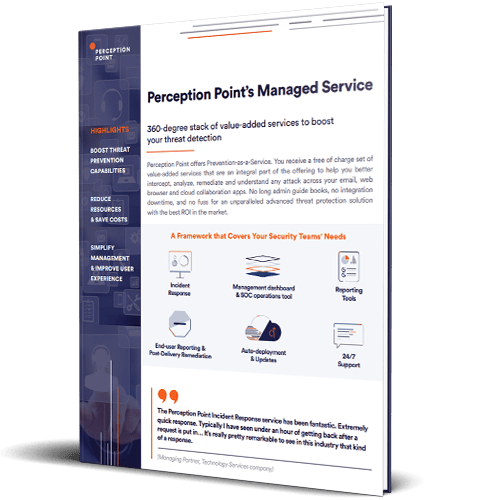TL;DR
- Custom GPTs empower users but also raise concerns about misuse in phishing campaigns.
- Malicious actors may exploit AI-generated content to enhance the sophistication of phishing attacks.
- Vigilance, AI-based security, and user education are vital to counter the evolving threat of AI-powered phishing.
OpenAI’s ongoing developments in the field of artificial intelligence (AI) have introduced the concept of custom GPTs, offering users the ability to create AI agents tailored to their needs without the necessity of coding skills. This significant leap in AI technology represents a promising advancement in the AI landscape, but it also opens the door to potential misuse. In particular, malicious actors may seize this highly customizable and easily accessible capability to enhance their phishing campaigns.
The emergence of custom GPTs
OpenAI’s decision to empower GenAI users with the capacity to craft their custom AI agents marks a noteworthy milestone in the evolution of AI. This feature eliminates the need for extensive coding knowledge, allowing users to configure AI models to their specific requirements with relative ease. While this advancement holds immense potential for legitimate use cases, it also raises concerns about its potential exploitation by malicious individuals and groups.
The threat of custom GPTs in phishing
Tal Zamir, CTO of Perception Point, a cybersecurity company, has raised a significant concern regarding the implications of custom GPTs for phishing attacks. Zamir believes that malicious actors will leverage this newfound capability to amplify their phishing campaigns significantly. By harnessing custom GPTs, attackers can efficiently generate highly personalized and convincing phishing emails, surpassing the limitations of traditional methods like ChatGPT.
Exploring the impact of custom GPTs on phishing campaigns
The introduction of custom GPTs is not the sole factor contributing to their potential use in phishing campaigns. OpenAI has enhanced these models with features like Actions, which enable GPTs to interact with external services, including email systems and databases. This newfound capability streamlines phishing campaigns, offering hackers the convenience of automating various aspects of their attacks.
By utilizing custom GPTs integrated with Actions, malicious actors can delegate a significant portion of their phishing efforts to these AI models. This shift towards automation allows attackers to scale their operations efficiently while minimizing their own direct involvement. Custom GPTs can generate convincing phishing emails, infiltrate email systems, and retrieve sensitive data from databases—all with minimal human intervention.
The growing concern about phishing attacks
Phishing attacks have long been a prevalent and effective method employed by cybercriminals to compromise individuals and organizations. These attacks often rely on social engineering tactics to deceive recipients into divulging confidential information, clicking on malicious links, or downloading harmful attachments. The effectiveness of phishing campaigns lies in their ability to mimic legitimate communication convincingly.
Custom GPTs have the potential to elevate phishing attacks to new levels of sophistication. The AI-generated content can closely mimic human-written emails, making it challenging for recipients to discern between genuine and fraudulent messages. Furthermore, the automation of various tasks within phishing campaigns enhances their efficiency and scale.
The need for vigilance and countermeasures
As the use of AI in cyberattacks continues to evolve, individuals and organizations must remain vigilant and implement robust cybersecurity measures. Detecting AI-generated phishing emails can be a challenging task, but it is not impossible.
Cybersecurity solutions should adapt to the changing threat landscape. AI-based security systems that can recognize the subtle differences between genuine and AI-generated content are becoming increasingly essential. Furthermore, user education and awareness play a crucial role in mitigating the risks associated with phishing attacks. Training individuals to recognize phishing attempts and promoting safe online practices are fundamental steps in enhancing overall cybersecurity.
OpenAI’s introduction of custom GPTs represents a significant stride in AI technology, offering users unparalleled customization and versatility. However, this advancement also highlights the dual nature of AI developments. While these innovations hold great promise for legitimate applications, they introduce new challenges in the realm of cybersecurity.
The potential use of custom GPTs in phishing campaigns underscores the importance of staying one step ahead of cyber threats. As technology evolves, so must our cybersecurity strategies and defenses. Ultimately, the responsible and ethical use of AI remains a crucial consideration as we navigate the complex landscape of AI advancements and their impact on our digital lives.
This article first appeared in Cryptopolitan, written by Editah Patrick on November 30, 2023.























